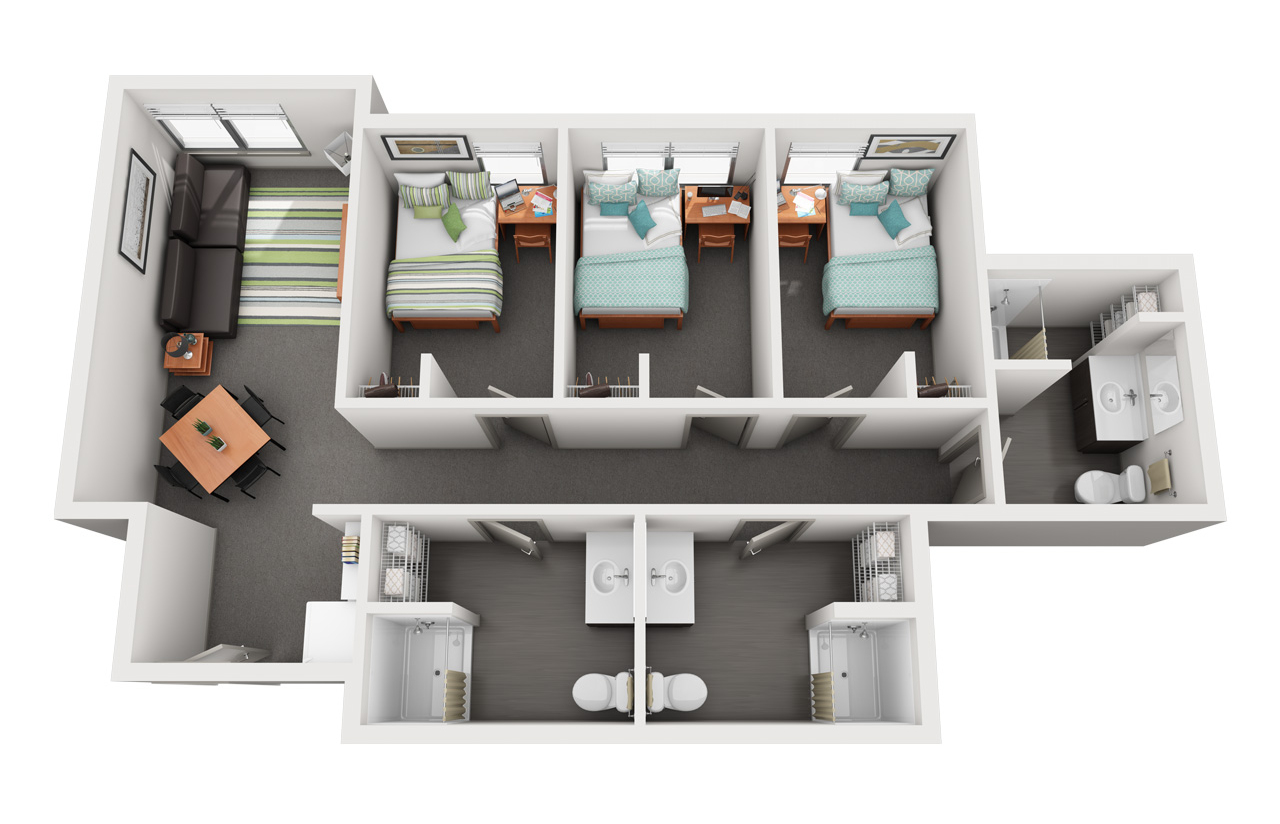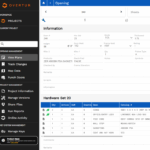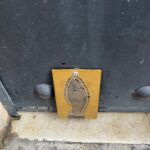 This question has come up quite a few times over the years – back when I was writing specifications and more recently from readers:
This question has come up quite a few times over the years – back when I was writing specifications and more recently from readers:
Can a bedroom door within a suite in a dormitory have a separate deadbolt in addition to the latching hardware?
Often facility managers in colleges and universities want to add a deadbolt to these bedroom doors for security and privacy. But are two releasing operations allowed in order to unlatch these doors?
The International Building Code (IBC) and NFPA 101 – Life Safety Code both allow entrance doors to residential dwelling units and sleeping units to have a separate “night latch, dead bolt, or security chain,” in addition to the latching hardware. This is limited to devices which can be opened from the inside without a key or tool, and the calculated occupant load of the dwelling unit can not be more than 10 people. In the image above, the entrance door to the suite (lower left) could have a separate deadbolt and be compliant with the model codes. BUT – are the bedrooms within a suite considered sleeping units?
I’ll use the IBC in my explanation since it has been adopted as the building code in just about every US state; the NFPA 101 requirements are very similar. Since the separate deadbolt is allowed on the entrance doors to sleeping units (and dwelling units), it comes down to the question of whether a bedroom in a suite is a sleeping unit. Here are the IBC definitions for the terms sleeping unit and dwelling unit:
SLEEPING UNIT. A single unit that provides rooms or spaces for one or more persons, includes permanent provisions for sleeping and can include provisions for living, eating and either sanitation or kitchen facilities but not both. Such rooms and spaces that are also part of a dwelling unit are not sleeping units.
DWELLING UNIT. A single unit providing complete, independent living facilities for one or more persons, including permanent provisions for living, sleeping, eating, cooking and sanitation.
A dorm suite with a kitchenette would likely be considered a dwelling unit as it would have all of the living spaces referenced in the definition. Without cooking facilities, it would probably be considered a sleeping unit. An individual dorm room like the one I lived in at Vermont Technical College would be a sleeping unit – it only had beds, desks, and closets (and a rabbit named Debbie). Any of these 3 configurations would allow a separate deadbolt on the entrance door to the unit as long as there were no local code modifications affecting these doors.
According to the IBC’s definitions, the bedrooms within the dwelling unit would not be considered sleeping units. The IBC Commentary supports this interpretation:
The new style of dormitory in colleges consists of two, three or four bedrooms with one or two single occupant bathrooms and a shared living space. These facilities are considered a sleeping unit. Only where there are full cooking and eating facilities (i.e., a kitchen with a range) within the unit, is the unit considered a dwelling unit. The two-, three- or four-bed-room units operate similar to an apartment. Considering this group of rooms a sleeping unit clarifies that the provisions in Chapter 7 to separate dwelling or sleeping units allows for this group of rooms to be separated from adjacent groups and the corridors, but does not require the bedrooms to be separated from the associated living room or bathrooms.
I spoke with ICC Staff to confirm, and we both agreed that technically the bedrooms are not sleeping units – therefore, the bedroom doors do not fall into either of the categories of doors that could have the separate deadbolts. With that said, it might be worth having a discussion with the AHJ – or possibly even proposing a code change – since allowing separate deadbolts on bedroom doors seems like it would be a safe application. The rooms are inhabited by people who know how to lock and unlock their door, and the occupant load is very low. Note: This is only my opinion – the AHJ will have to decide.
What do you think?
Image: University of Tennesee – Knoxville, where my kid is a proud Vol! 🙂
You need to login or register to bookmark/favorite this content.





It seem that changes need to be made in the code as the wording Sleeping Unit is quite confusing if in some cases the code doesn’t apply to to space designed and used for people to sleep.
I see no problem with the bedrooms having their own deadbolt ,as you said (actually wrote) they all know how to use the locks on their doors. Question? Would these doors be rated .?? Or similar to a house or apartment be a standard door
Hi David –
These bedroom doors wouldn’t be rated. Because they are not individually classified as sleeping units, they do not require a separation.
– Lori
I would have to say that it would all come down to keying system, is the regular retractable latch and the deadbolt keyed alike?? Thumbturn or double cylinder deadbolt??
In the end, I would probably go with a classroom security lockset where you have a thumbturn on inside and key on outside or occupant can retract the deadbolt if needed to comply with one-motion-egress.
Chain latches will just slow down egress as itnis a 2-motion-egress and is one more barricade to deal with if someone had to enter from outside of the room (police or rescue)
Hi Jess –
A double cylinder deadbolt wouldn’t be allowed either way. The classroom security lock has a key cylinder on the inside, so maybe an entrance/office function would be better.
– Lori
Hi Lori. Thank you for pointing this out, i had completely missed it. The wording in the defn looks deliberate, but I can’t imagine the backstory and it’s not explained in the commentary.
I can’t think of any sleeping room, toilet room or changing room with normal occupancy 1 or 2 that shouldn’t be allowed to use a deadbolt under 1010.1.9.4. In rooms where people change clothes, many people really like to check the door and make sure it’s locked. Simultaneous retraction makes these people uncomfortable, and I think the code mistakes in denying them the extra peace of mind of a second lock. I hope you can deliver that message to the right committee.
Thanks again,
Lloyd
Though technically not a separate deadbolt,
Would not an interconnected lock be acceptable
Hi Howard –
Yes, an interconnected lock would be acceptable.
– Lori
I am so glad Dorms are the other shop… But I want to hear more about Debbie and her view on your path to this career.
In an early show of independence once I got to college, I bought Debbie at the county fair. I have no idea what possessed me to do that, or how we got through freshman year without Debbie being sent home. Ahh…the good old days. At that time, Debbie did not know where my career path would take me.
– Lori
Glad Debbie was a rabbit and not a pet mink :^)